Thursday, March 28, 2013
Monday, March 18, 2013
Stormcrow - Kingdom of Vertical
Tuesday, February 26, 2013
Bathory - To Enter Your Mountain
Thursday, February 14, 2013
Brown Mountain, or, the Ulyssean Failure of Manifest Destiny
Friday, January 11, 2013
Young and In the Way - I Am Not What I Am

"I stand in awe of my body, this matter to which I am bound has become so strange to me. I fear not spirits, ghosts, of which I am one,—that my body might,—but I fear bodies, I tremble to meet them. What is this Titan that has possession of me? Talk of mysteries!—Think of our life in nature,—daily to be shown matter, to come in contact with it,—rocks, trees, wind on our cheeks! the solid earth! the actual world! the common sense! Contact! Contact! Who are we? where are we?" (Thoreau, "deep within the hostile ranks of clouds" on Mt. Katahdin)
Thursday, January 10, 2013
Falls of Rauros . . . Tol Brandir
Tuesday, January 1, 2013
Saturday, November 17, 2012
The Howling Wind - A Dead Galaxy Mirrored in an Ice Mirage
Aluk Todolo - Occult Rock
Saturday, October 13, 2012
Sapthuran - Astigan Se Beorg
Sapthuran
Astigan Se Beorg (Journey up the Mountain)
He continued his journey
With eyes fixed upon the mountain
Soon he would reach its base
Soon he would ascend its slopes
The winds began to blow
The warm breeze turned to ice
It's bite invigorated his spirit
As he walked onward
The pain turned steeply upward
He struggled to to traverse the incline
The air grew thin
A faint snow began to fall
And he stepped out upon its apex
Looking over the forests below
He stood atop the highest mountain
And, finally, he was alone
Here he learned true peace
And he vowed never to descend
Never to return to the world
"But the third death, by which this Soul died, no one living grasps except the one on the mountain" (Marguerite Porte, Mirror of Simple Souls, Love speaking).
Tuesday, October 2, 2012
Sunday, September 9, 2012
Panopticon - Killing the Giants as They Sleep
Saturday, August 25, 2012
Bergthron - Autarktis
 The throne of mountains - how can it be reached? Breathless, only with ropes or rather by meditating in your head, thus ascending?
The throne of mountains - how can it be reached? Breathless, only with ropes or rather by meditating in your head, thus ascending?Better fetch up a mask for breathing;
better cover your body;
better test your muscles before
heading towards the bergthron.
Pretenders have often been rebuked and fallen great depths.
The mountain sent you a warning, so prepare yourself.
Bergthron on the journey to Autarktis, the Anti Arctic in autonomy. Leaving Ragnarök behind.
Wie definiert man Gott,
auf dem Gipfel der Welt?
Wo ist das Leben,
wenn man nach unten blickt?
Wie definiert man Gott,
wenn man den Himmel
mit einer Hand berührt?
Wohin weht der Geist,
wenn man zwischen zwei
Welten steht?
Hinauf zu den lichten Göttern,
oder hinab ins finst're Tal,
dort, wo die Menschen hausen?
Eine Expedition in das höchste Land,
durch unwegsames Gelände,
über steinige Pfade...
...der höchste Berg ist nicht zu steil.
Nicht zu steil, um zu fallen,
zu fallen, tief in sich hinein,
tief hinein ins eigne Sein,
tief zu sich selbst herab.
Kalt ist es auf jedem Gipfel,
gefahrvoll und stürmisch, eisig und steil.
Ohne Gefühl ... alle Sinne taub.
Augen ohne Licht,
Ohren ohne Resonanz,
Worte ohne Klang.
Ob Tag, ob Nacht,
ob Gott, Berg oder Mensch.
Hier, auf dem Gipfel der Welt.
Hier, ist alles Eins!
(c) 2010 by Bergthron
Thursday, July 12, 2012
Digging into stone (III)
We lacked entertainment up here at 3,000 meters altitude. One of our
engineers had brought a deck of cards with him yet I’ve already grown sick of
all these parties playing cards. The guy even started to read horoscopes from
the cards as he was mumbling something about gypsies while defining the number
8 in combination with a queen of hearts. He was clicking with his tongue every
time he realized a new meaning disclosed under his very eyes. This was
happening every two evenings in a small tent intended to cover one half of our
small expedition. I decided to change tents after the first evening.
In the
other tent I read books dealing with the problem of metal materials in the
mountains. We all know that gold is to be found deep below in the galleries.
They started in ancient times to dig for the gold in the stones. Some in the US
combed the rivers, but let’s focus on the mountains. So while I was reading
this book on the Art of Gold Digging, at 3,000 meters above sea level, thinking
or rather blackdreaming of men wearing sharp hats on their heads and digging
with shovels into loose stone to uncover gold, I understood that bergmetal
maybe only existed in my head. All of a sudden my heart muscles cramped and the
chambers threatened to narrow. Dangerously narrow. I screamed of angst. Has the
whole expedition only started its doleful course because of a crazy idea of
mine? My heart pushed hard against the skin. Can we really find bergmetal or
just a material I had mistaken for it? Only because I want to find it, my
fingers should feel the touch of cold bergmetal.
 |
| Anne Burgess [CC-BY-SA-2.0 (http://creativecommons.org/licenses/by-sa/2.0)], via Wikimedia Commons |
The tasty muffy smells of stones when I arranged them for my grandparents to acknowledge my first demonstrations of natural history. I used a room under the rooftop for installing a museum of geology and paleontology, temporarily. There were fossils and minerals, besides stones from Icelandic volcanoes. My father brought some stones with holes from there. He journeyed as lone wanderer through the Land of Fire and Ice. Postcards reached my mom’s mailbox and so the children’s ears. Definitely I remember the adventures. When winds had destroyed his tent and had blown it away so he had to ask around with local peasants to sleep in their haystocks.
All the
memories appeared in the mountain night on the tenth day of our small
expedition to gain some bergmetal specimen. Outside was cold, inside the tent
as well but I wrapped myself up in a warm sleeping-bag. We planned to reach a
lower peak of a whole peak chain. On the left and right slopes of the peak we
expected chasms in which bergmetal reservoirs might be found. Still there was
not enough material to base a decent research on. Only problem was that the
region we were climbing was exposed to heavily capricious weather changes.
Today we could walk in sunshine and tomorrow in snowfall and storm. The stones
only answered in silence.
We reduced our talks when we tried to scale the
protruding noses and bushy eyebrows in rock. The mountain throws back any echo
thousandfold. Surrounded by stones, we felt isolated and so we continued to
reach our next mark. All around alone, only the expedition brought some human
life into this rather indifferent world. This was the world-without-us reaching
me through the night. Could discern some voices in the rolling stones and
howling winds through all the mountain nights. Long ago when our earth was
shaped by heat eruptions and seismic movements, the stones screamed out. Yet I don’t
believe that the element bergmetal was already created back then. Rather it was
a newer sidetrack of evolution. One of my assistants suggested bergmetal to be
some cultural facet in urban civilization. Couldn’t agree because that seemed
quite far-fetched to me. Bergmetal is to be found in nature. The expedition
will deliver evidence. After sunbreak the piledriver will drill into stones to
tear out bergmetal. I recall a German saying: Im Berg ruhet geborgen das
Metall im Schall. Echoes can
lead us to this element which is resting in the berg. By violence the
geologists enter the inner realm below. In Windischeschenbach (Germany) a Continental Drilling Program (KTB) tried
to reach the core of our planet and the machine mines minerals from kilometres
beneath the surface. Be sure the coming wars will revolve around resources.
Bergmetal can be an element freely distributable and renewable as it is located
in the highest of heights. Yet would that geologically mean that it was of
rather new origin?
 |
| You can buy this postal card at: www.briefmarkenhaus-dresden.de / keyword: Rumänien |
„Mister, we oughta leave now.“
Shit!
This cannot be! Overslept ... on an expedition trip where I am supposed to
lead. Holy Mother Moses! I mumbled yes yes coming coming, pushing the
sleeping-bag away and not really jumping up. In a split second hastened to
dress me in half-lying, half-sitting position still in the tent. When I left
the tent there was some embarrassing applause by the team. Yoho! Boss! We’re
ready to fly! Some members even put their fingers in the mouths to whistle. I
waved to my assistant professor of geology and asked him about the weather
changes and if we can estimate the smooth running of our today’s route. He
shrugged his shoulders and added: Yes surely we can achieve some altitude as of
today. The team seems to be really up-to-strength and he calculated the majesty
of the places we’re crossing. Now you don’t really know what majesty could be
in matters of scientific categories. We both found out that bergmetal needs
some element of majesty in its constitution. So most likely at impressing
places bergmetal as a pure element can be found. However, what shape does
bergmetal actually show when it is unearthed from mountainside? We are anxious
to experience it.
The team
members knew I had worked until late at night and so they excused my
oversleeping. Some guys continued to giggle a bit while we were pushing the
mules upwards. As a breeze came up the guys muted. For breakfast I couldn’t eat
anything as I was expecting some turn in our expedition soon. The closer we got
to the peak of the mountains somewhere here, the better the chances of
extracting enough material for our studies. Strongly do I believe that
bergmetal must be some kind of metallic stone – maybe glimmering like an
anthracite.
As of now, I don’t know in what layer bergmetal resides. In the
highest bed is to exclude from rational argumentation as it has taken some time
to develop.
Anyway, if we follow the reasoning of my assistant, bergmetal is
also a cultural fact. So searching for it in the mountains would be a hardly
sensible thing to do. On the contrary, I still believed it lay in rest in rock. Strangely enough, the colloquial term for it appeared in a dream one night and
I was already known in the scientific world as Stig Olsdal, a specialist in
dubious surfaces. When there was reasonable doubt about a sediment or layer
what it could bear inside, I was called upon. Don’t misunderstand my task.
Naturally, any geology professor could work on the location as he or she was efficiently trained to handle the tools and to be an expert in the history of our earth. Yet I was expected to clarify haunted soils. There were several cases in the United States when old Native American trails seemed to be still haunted by some spirit and I was expected to demystify the place and then extract the specimen for further investigations. Some minerals are believed to hold special powers in ancient myths. So I was trained both in geology and folklore. As in the specific case of bergmetal I nurtured the notion of an elementary resource in the mountainworld.
Naturally, any geology professor could work on the location as he or she was efficiently trained to handle the tools and to be an expert in the history of our earth. Yet I was expected to clarify haunted soils. There were several cases in the United States when old Native American trails seemed to be still haunted by some spirit and I was expected to demystify the place and then extract the specimen for further investigations. Some minerals are believed to hold special powers in ancient myths. So I was trained both in geology and folklore. As in the specific case of bergmetal I nurtured the notion of an elementary resource in the mountainworld.
As for now I should really focus on the ascent
of the mountain. Readily I will elaborate on the cultural facts of bergmetal
next time. Just now I heard some screams of surprise from the avantgarde
section. I better rush forward to ... later.
Apparently there were no interruptions this time. This blog can only rely on the texts being delivered to the editors here. We have no means to double-check the suppositions made here. It is at the reader's discretion.
Apparently there were no interruptions this time. This blog can only rely on the texts being delivered to the editors here. We have no means to double-check the suppositions made here. It is at the reader's discretion.
Sunday, July 8, 2012
I Don't Know: Spontaneity, Bouldering, and the Crowleyan whY
"As far as Wasdale is concerned the inclination to practise on boulders and other apparatus appears to have been something that arose spontaneously in the mid 1890s" (Michael Cocker)
1. The Easy Way.
2. The Right Slab. You may not use the edges.
3. do. You may not use the slab for handhold.
4. The South Arete. One leg each side all the way.
5. The Overhung Arete.
6. The Left Crack. You must not use the jammed stone.
7. do. You must not use the left branch of the Y for handholds.
8. do. Finishing to the right of the j.s. (jammed stone)
8a. Between the cracks. Doubtful if this has been done fairly.
9. The Right Crack.
10. do. Not using the Left Crack.
11. The Left Undercut. Not using the Right Crack.
12. The Right Undercut. Keeping (?) the edge.
13. The North Corner on the face.
14. do. in (?) the corner.
15. The Steeple Ridge from the NE.
16. do. N. end.
17. do. W. end.
18. The Left Slab.
19. do. Not using the edge.
20. The Easy Crack.
21. The Middle Slab.
22. The Easy Way. Feet first. Face inwards.
Source: John Gill, "The First Bouldering Guide?"
Mr. Crowley, what went on in your head
Mr. Crowley, did you talk with the dead
Your life style to me seemed so tragic
With the thrill of it all
You fooled all the people with magic
You waited on Satan's call
Mr. Charming, did you think you were pure
Mr. Alarming, in nocturnal rapport
Uncovering things that were sacred
Manifest on this earth
Conceived in the eye of a secret
And they scattered the afterbirth
Mr. Crowley, won't you ride my white horse
Mr. Crowley, it's symbolic of course
Approaching a time that is classic
I hear the maiden's call
Approaching a time that is drastic
Standing with their backs to the wall
Was it polemically sent
I wanna know what you meant
I wanna know
I wanna know what you meant
THE MOUNTAINEER
Consciousness is a symptom of disease.
All that moves well moves without will.
All skillfulness, all strain, all intention is contrary to ease.
Practise a thousand times, and it becomes difficult; a thousand thousand, and it becomes easy; a thousand thousand times a thousand thousand, and it is no longer Thou that doeth it, but It that doeth itself through thee. Not until then is that which is done well done.
Thus spoke FRATER PERDURABO as he leapt from rock to rock of the moraine without ever casting his eyes upon the ground.
(Aleister Crowley, Book of Lies, Kephale LB)
Friday, May 25, 2012
Depressive Silence - Depths of the Ocean
Depressive Silence
"One tyme mine understondyng was led downe into the see ground, and there I saw hill and dalis grene, semand, as it were, mosse begrowne, with wrekke and with gravel. Than I understode thus, that if a man or a woman were under the broade watyr, if he might have sight of God, so as God is with a man continually, he should be save in body and soule and take no harme; and, overpassing, he should have mor solace and comfort than al this world can telle" (Julian of Norwich, A Revelation of Love, chapter 10)
Sunday, May 13, 2012
Bergwerk: Metal Mining
"Great is the power of memory, a fearful thing, O my God, a deep and boundless manifoldness; and this thing is the mind, and this am I myself. What am I then, O my God? What nature am I? A life various and manifold, and exceeding immense. Behold in the plains, and caves, and caverns of my memory, innumerable and innumerably full of innumerable kinds of things, either through images, as all bodies; or by actual presence, as the arts; or by certain notions or impressions, as the affections of the mind, which, even when the mind doth not feel, the memory retaineth, while yet whatsoever is in the memory is also in the mind- over all these do I run, I fly; I dive on this side and on that, as far as I can, and there is no end." (Augustine, Confessions, 10.17)
"For descend as low as we may, even to the reputed regions of Tartarus and Pluto, we never find the course of our passage any one thing absolutely similar to another. We are always meeting something new, something different; and every new and different substance is only an indication of some different change. Look at the vegetable kingdom; how varied! how pleasing! how delightful! because of this variety! And why so varied, but in consequence of the variety prevailing in the mineral kingdom, which contains its origin, root, and essence?" (Emmanuel Swedenborg; on Swedenborg and mining, see Lars Bergquist, Swedenborg's Secret, 113ff.)
"Behold, wonderful thing! I glide down from the upper world in a bucket, / thus hanging, I am brought all the way to the dark shadows of death. / But, as I moved to and fro hanging in the middle of the air, / it was pleasant for me to sing holy hymns" (Swedenborg, Ludus Heliconus).
"He sat down on the bench beside Elis, and began to describe the various processes minutely, placing all the details before him in the clearest and brightest colours. He talked of the Mines of Falun, in which he said he had worked since he was a boy; he described the great main-shaft, with its dark brown sides; he told how incalculably rich the mine was in gems of the finest water. More and more vivid grew his words, more and more glowing his face. He went, in his description, through the different shafts as if they had been the alleys of some enchanted garden. The jewels came to life, the fossils began to move; the wondrous Pyrosmalite and the Almandine flashed in the light of the miner's candles; the Rock-Crystals glittered, and darted their rays.
Elis listened intently. The old man's strange way of speaking of all these subterranean marvels as if he were standing in the midst of them, impressed him deeply. His breast felt stifled; it seemed to him as if he were already down in these depths with the old man, and would never more look upon the friendly light of day. And yet it seemed as though the old man were opening to him a new and unknown world, to which he really properly belonged, and that he had somehow felt all the magic of that world, in mystic forebodings, since his boyhood.
'Elis Froebom,' said the old man at length, 'I have laid before you all the glories of a calling for which Nature really destined you. Think the subject well over with yourself, and then act as your better judgment counsels you."' (E.T.A. Hoffman, The Mines of Falun).
Bergmannslied
Der ist der Herr der Erde,
wer ihre Tiefe mißt
und jeglicher Beschwerde
in ihrem Schoß vergißt.
und jeglicher Beschwerde
in ihrem Schoß vergißt.
Wer ihrer Felsenglieder
geheimen Bau versteht
und unverdrossen nieder
zu ihrer Werkstatt geht.
geheimen Bau versteht
und unverdrossen nieder
zu ihrer Werkstatt geht.
Er ist mit ihr verbündet
und inniglich vertraut
und wird von ihr entzündet,
als wär' sie seine Braut.
und inniglich vertraut
und wird von ihr entzündet,
als wär' sie seine Braut.
Er sieht ihr alle Tage
mit neuer Liebe zu
und scheut nicht Fleiß noch Plage;
sie läßt ihm keine Ruh'.
mit neuer Liebe zu
und scheut nicht Fleiß noch Plage;
sie läßt ihm keine Ruh'.
Die mächtigen Geschichten
der längstverfloss'nen Zeit
der längstverfloss'nen Zeit
ist sie ihm zu berichten
mit Freundlichkeit bereit.
mit Freundlichkeit bereit.
Der Vorwelt heil'ge Lüfte
umwehn sein Angesicht,
und in die Nacht der Klüfte
strahlt ihm ein ew'ges Licht.
umwehn sein Angesicht,
und in die Nacht der Klüfte
strahlt ihm ein ew'ges Licht.
Er trifft auf allen Wegen
ein wohlbekanntes Land,
und gern kommt sie entgegen
den Werken seiner Hand.
ein wohlbekanntes Land,
und gern kommt sie entgegen
den Werken seiner Hand.
Ihm folgen die Gewässer
hilfreich den Berg hinauf,
und alle Felsenschlösser
tun ihre Schätze' ihm auf.
hilfreich den Berg hinauf,
und alle Felsenschlösser
tun ihre Schätze' ihm auf.
Er führt des Goldes Ströme
in seines Königs Haus
und schmückt die Diademe
mit edlen Steinen aus.
in seines Königs Haus
und schmückt die Diademe
mit edlen Steinen aus.
Zwar reicht er treu dem König
den glückbegabten Arm,
doch frägt er nach ihm wenig
und bleibt mit Freuden arm.
den glückbegabten Arm,
doch frägt er nach ihm wenig
und bleibt mit Freuden arm.
Sie mögen sich erwürgen
am Fluß um Gut und Geld;
er bleibt auf den Gebirgen
der frohe Herr der Welt.
am Fluß um Gut und Geld;
er bleibt auf den Gebirgen
der frohe Herr der Welt.
-- Novalis
[translation here]
What is outer is what is inner, raised to the level of a secret -- Perhaps also vice versa. (Novalis)
Georgious Agricola, De re metallica
Friday, May 4, 2012
Thursday, April 26, 2012
Furze - Beneath the Wings of the Black Vomit Above
No 1 Asks at the Known End's Edge it's clearest answer
No 2 Temporarily controls No 1's fear of No 3
No 3 Strays out away from all relations
No 1 Names No 2 "HALF-ETERNITY"
No 2 (don't) reply to that
No 3 Will sometime be pure
No 1 Must think of No 1 as No 1 in action and end
No 2 May have replyed but also eventually made that question...
No 3 Is the Only one at last; No 1 and No 2 blindly related
They blindly related, for some (knew)...
For Black is the holy Unholy...is this the call for existence
Stimulating the unrelated Woe. Sold as one as Everything.
No 3 Strays out away from all relations
No 1 Names No 2 "HALF-ETERNITY"
No 2 (don't) reply to that
No 3 Will sometime be pure
No 1 Must think of No 1 as No 1 in action and end
No 2 May have replyed but also eventually made that question...
No 3 Is the Only one at last; No 1 and No 2 blindly related
They blindly related, for some (knew)...
For Black is the holy Unholy...is this the call for existence
Stimulating the unrelated Woe. Sold as one as Everything.
The summit of the mount—that high state of perfection
we here call union of a soul with God . . . The darkness and trials, spiritual
and temporal, that fortunate souls ordinarily undergo on their way to the high
state of perfection are so numerous and profound that human science cannot
understand them adequately. Nor does experience of them equip one to explain
them. Only those who suffer them will know what this experience is like, but
they won’t be able to describe it. (John of the Cross, The
Ascent of Mount Carmel)
Monday, April 16, 2012
Aurvandil - Over the Seven Mountains
"There is a Mountain situated in the midst of the earth or center of the world, which is both small and great. It is soft, also above measure hard and stony. It is far off and near at hand, but by the providence of God invisible. In it are hidden the most ample treasures, which the world is not able to value. This mountain - by envy of the devil, who always opposes the glory of God and the happiness of man - is compassed about with very cruel beasts and ravening birds - which make the way thither both difficult and dangerous. And therefore until now - because the time is not yet come - the way thither could not be sought after nor found out. But now at last the way is to be found by those that are worthy - but nonetheless by every man's self-labor and endeavors.
To this Mountain you shall go in a certain night - when it comes - most long and most dark, and see that you prepare yourselves by prayer. Insist upon the way that leads to the Mountain, but ask not of any man where the way lies. Only follow your Guide, who will offer himself to you and will meet you in the way. But you are not to know him. This Guide will bring you to the Mountain at midnight, when all things are silent and dark." (Thomas Vaughn, Lumen de Lumine, or a New Magical Light [1651]).
And the seventh mountain was in the midst of these, and it excelled them in height, resembling the seat of a throne. (Book of Enoch, chapter XXIV)
Subscribe to:
Comments (Atom)



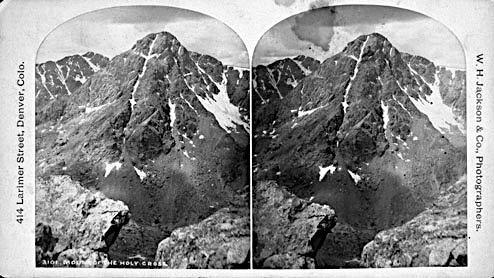


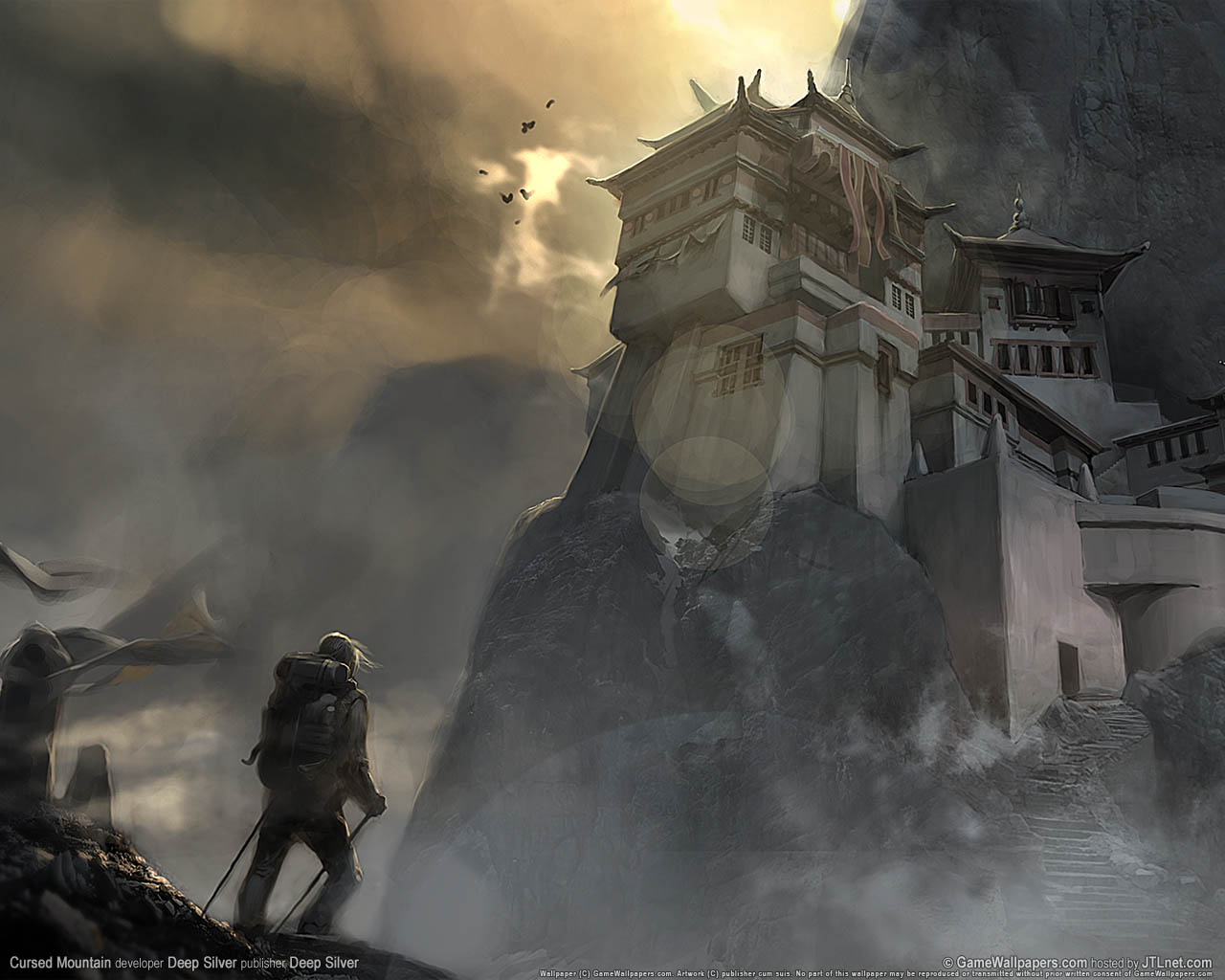




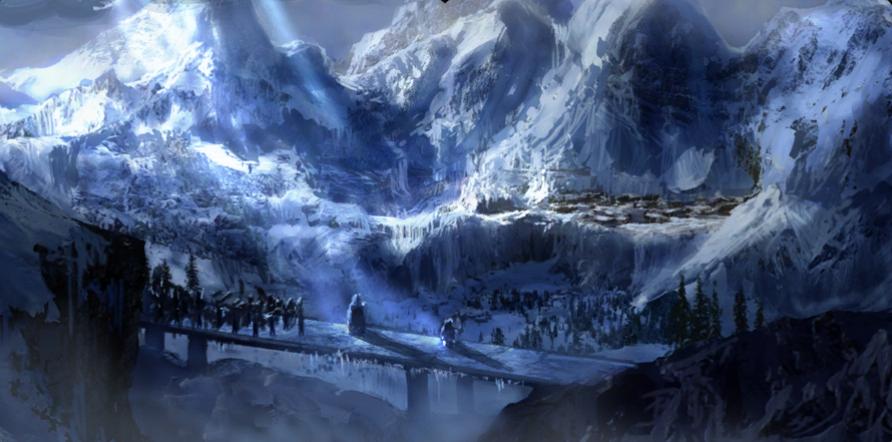
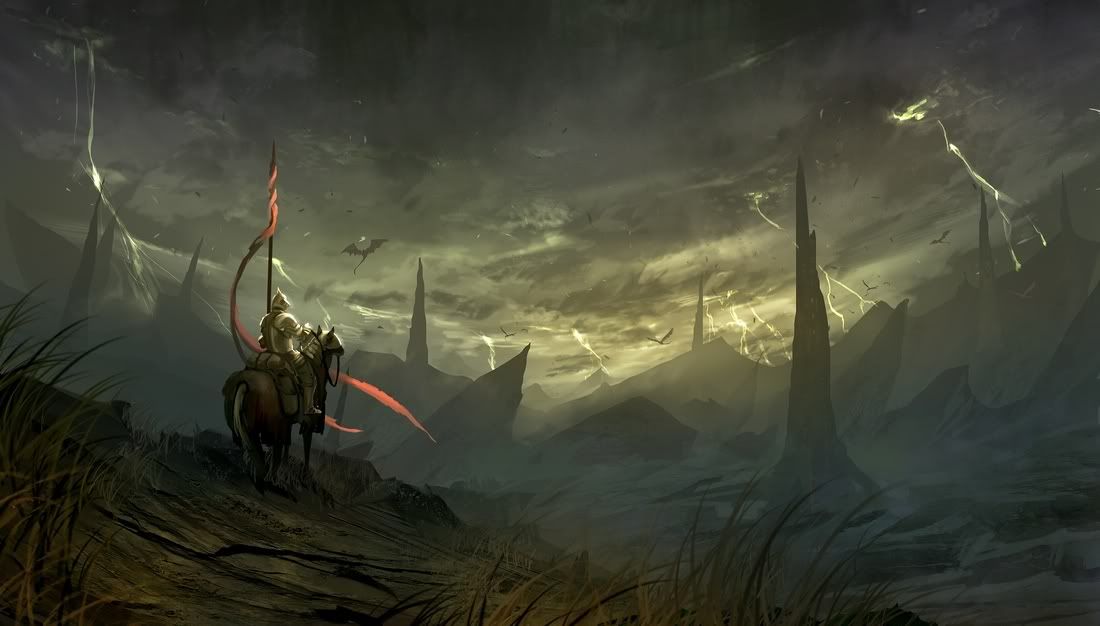



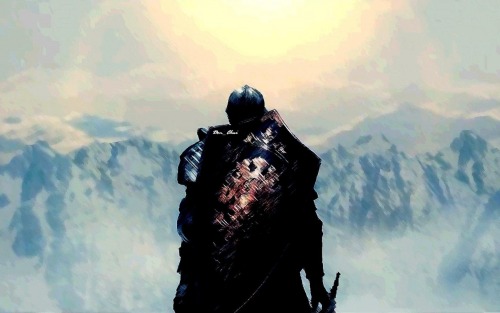





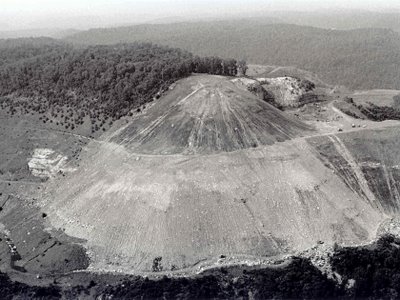









.jpeg)

